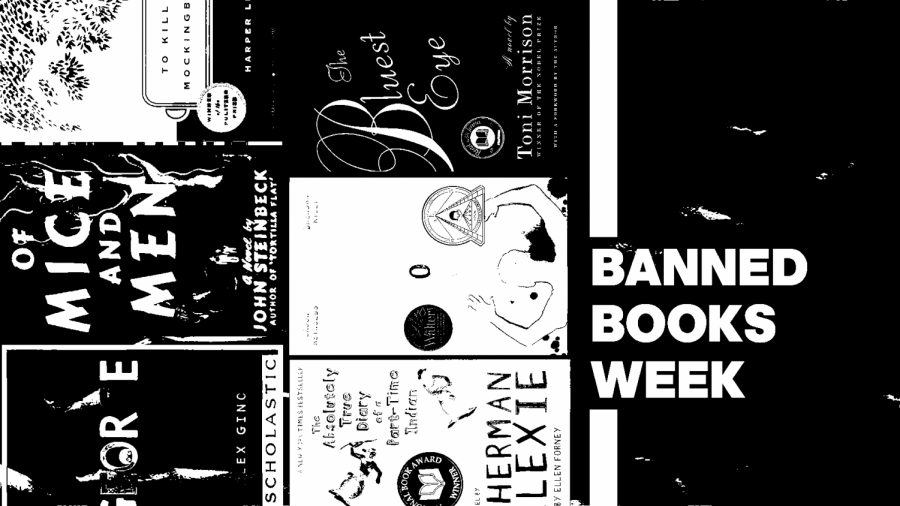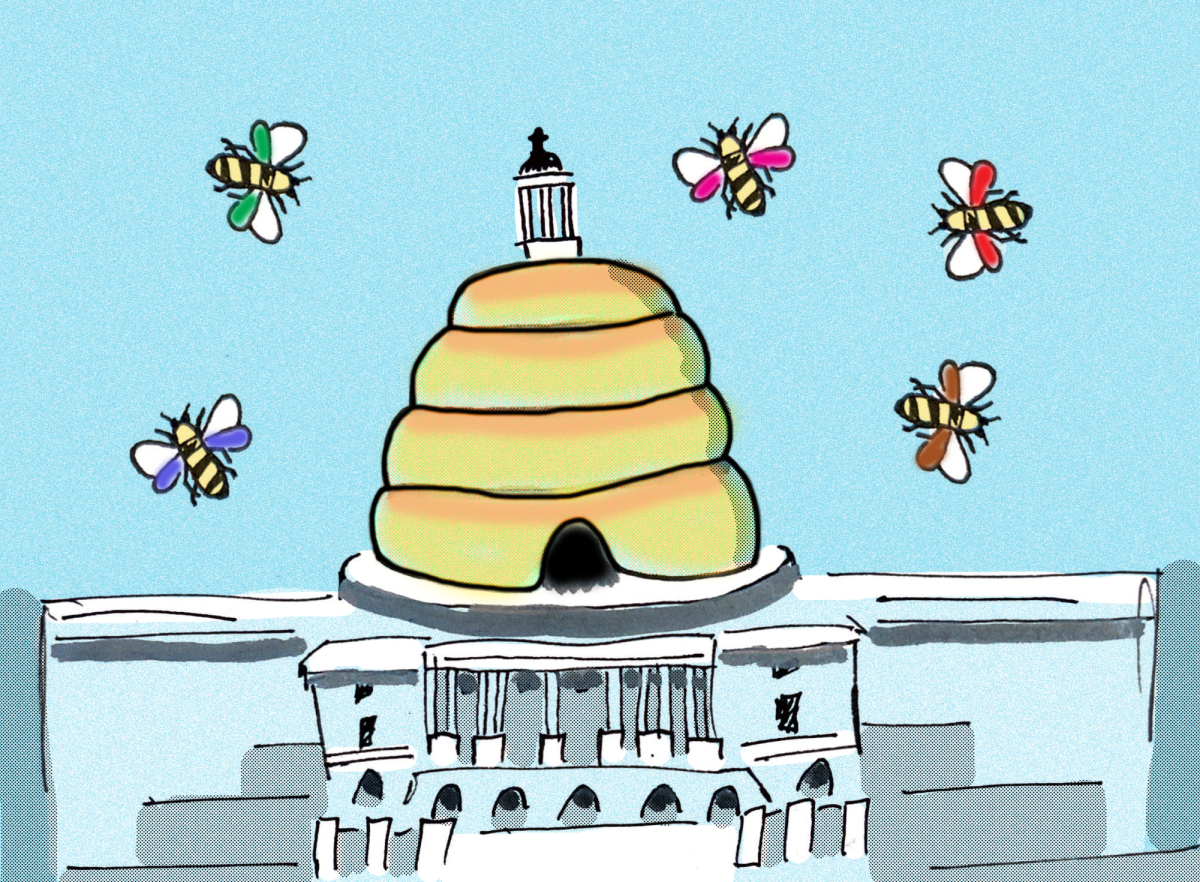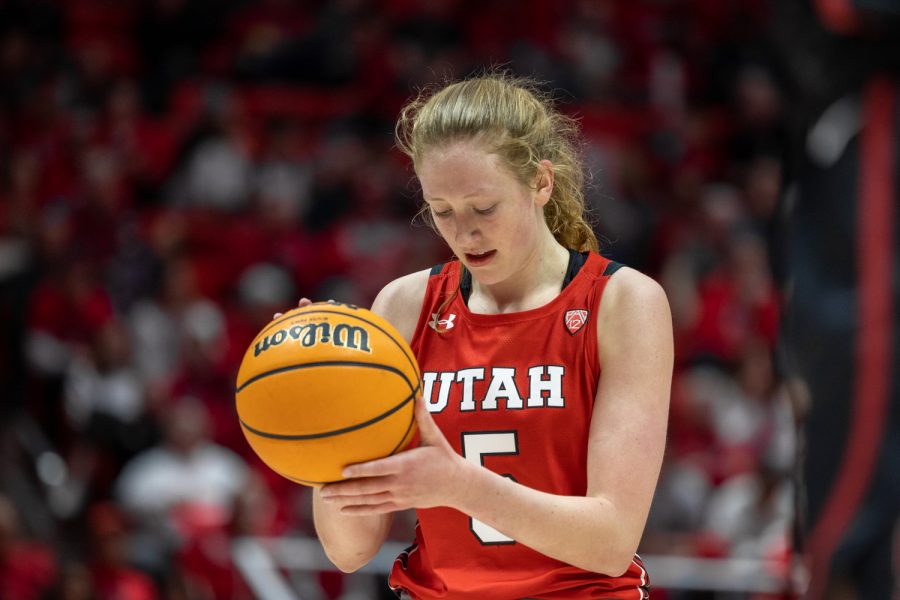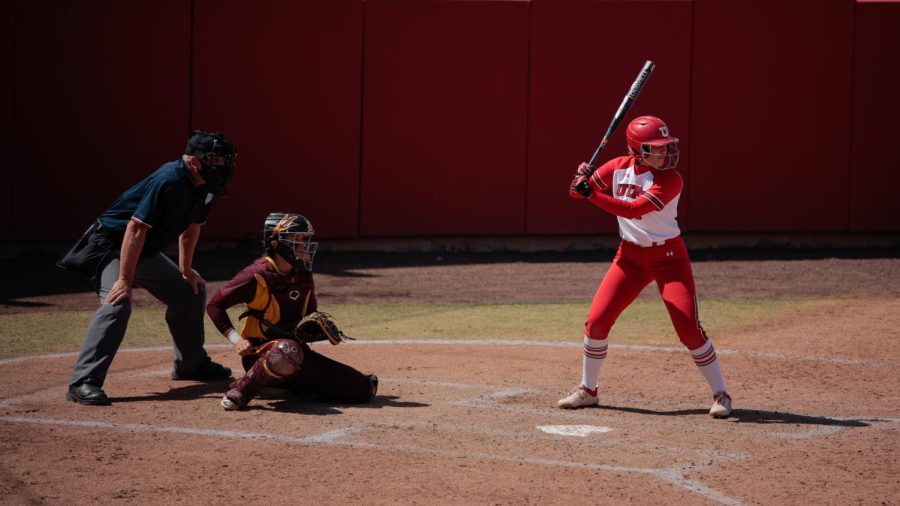U Library Holds Banning Books Discussion
(Graphic by Piper Armstrong | The Daily Utah Chronicle)
September 23, 2022
In light of the recent increases in censorship demands, the Marriott Library hosted an event on Monday, Sept. 19: Talking About Censorship: A Discussion About Banning Books in a Free & Open Society.
According to a report by PEN America, there have been 1,648 books banned over the past year, from schools and public libraries. And just last month in Utah, 52 books were removed from Alpine School District shelves.
The event included a panel discussion and Q&A. The discussion was led by Rebekah Cummings, a University of Utah associate librarian and the interim director of Digital Matters, a joint venture with the library that has a goal of sharing “new perspectives on culture using computing and technology.”
The Dean of the Marriot Library Alberta Comer began the event by discussing the value of being willing to have open discussions about this issue, especially during Banned Books Week.
The PEN report mentions several categories of subject matter that are being banned and challenged. LGBTQ+ themes were the most common.
“674 titles (41 percent) explicitly address LGBTQ+ themes or have protagonists or prominent secondary characters who are LGBTQ+ (this includes a specific subset of titles for transgender characters or stories — 145 titles, or 9 percent),” the report reads.
Katie Wegner, Salt Lake County assistant branch manager said they’re seeing huge request lists with hundreds of titles that parents’ rights groups, such as Utah Parents United, are demanding be removed from libraries.
“We do take this process seriously from the beginning to the end of the request,” Wegner said. “That might include changing the section where the book is housed, or taking it out of circulation altogether.”
According to the panelists, a common way that censorship is enacted is by citing pornographic material.
A panelist, Richard Price, Weber State University associate professor of political science, refuted the claims of pornographic content in school and public libraries, saying that passages were being taken out of context.
“There’s a website by Utah parents United called LaVerna in the Library, and they post up little passages from books that are supposed to be pornographic passages, but it really is like a paragraph of a 400-page novel, or they’ll have one picture, a 300-page graphic novel,” Price said. “So it’s really isolating small pieces.”
University of Utah Associate Professor of Educational Psychology Lauren Liang noted that the large amount of banning requests likely comes from fear.
“These parents are scared of the increasing volume of books published each year with themes that are uncomfortable for them, and so targeting those books as porn is a way to slow that progress,” Liang said. “It is a matter of control.”
A thought-provoking question was raised by Cummings during the roundtable discussion: “In an era where most teenagers have access to the Internet via multiple devices, TikTok, YouTube, Discord, Instagram, Snapchat, etc. … Why books? Is literature really where students are going to find sexually explicit content?”
A male student at the panel who wished to remain anonymous said he enjoyed the panel.
“The speakers took all my questions and answered them,” he said. “I really think there is a lot of work to be done in censorship in schools, and parents should really do their research before calling stuff porn.”
Cummings brought up a poll done by School Library Journal that showed 97% of librarians admitted to not purchasing materials because they’re afraid it could generate controversy.
Near the end of the event, Cummings explained why librarians like herself push back on unnecessary bans.
“It’s really important that we make sure our collections are diverse and tell a wide range of stories because we serve really diverse populations,” she said. “And so it’s just really, again, important to go through the process to look at the work as a whole and see what the literary merit is, and not just pull books because one parent disagrees with it, or even one group of parents.”













John Hedberg • Sep 23, 2022 at 12:40 pm
I’ve been listening to all sides of this debate, and as far as I know, no one advocates banning any books, but rather limiting access to people under 18.
Since sexuality is as addicting as any opioid, a lot of parents think their kids should be mature enough to handle that level of intensity, not to mention discernment between momentary feelings and lifelong consequences.
When I was underage, I thought the (over-)caution was arrogant and silly. Now, having lost (young) friends to stress- and anxiety-induced addiction, overdose, and suicide, I can sort of see it from both points of view.
Best Regards, with Love,
J Hedberg